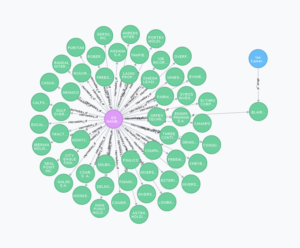I have been thinking about what Donald Trump means for the ‘system’, by system I am thinking about the complex system that is the US Government Machine and its associated parts. Part of my thinking is that systems of Government have learnt how to persist, they have adaptive to promote and maintain their own existence. The internal system dynamics and relationships are an evolved, and are an emergent property of the ‘system’. The people in the system don’t even really know they are part of it. You could make the argument that this is plausible as a Government needs to be transparent enough to its citizens so that they don’t revolt, but not too transparent that they revolt. This adaption is a buffer between the people and the Government, and allows the system to persist (not statically, its a quasi-stable state). Its not just the Government that as adapted to this way of persisting, its the media, the elite etc etc. The laws, process, norms and culture make it hard to radically alter the system quickly without a massive shock or tremendous effort.
It does bring us to the question of Trump. Trump is a major upset to this entire system, he is a massive shock. So the question is, is the ‘system’ just going to grind him down into nothing. Has the US state ‘system’ seen enough Trumplike behaviour that there are emergent process that will just kick in and slowly squeeze him until he disappears. Maybe the position of stable state will move a bit, its always moving, but not much.
The other possibility is that he is enough of a disruption or shock that the whole system just breaks apart, and self-organises into something completely new… That could produce anything.
I am not sure which is worse.
